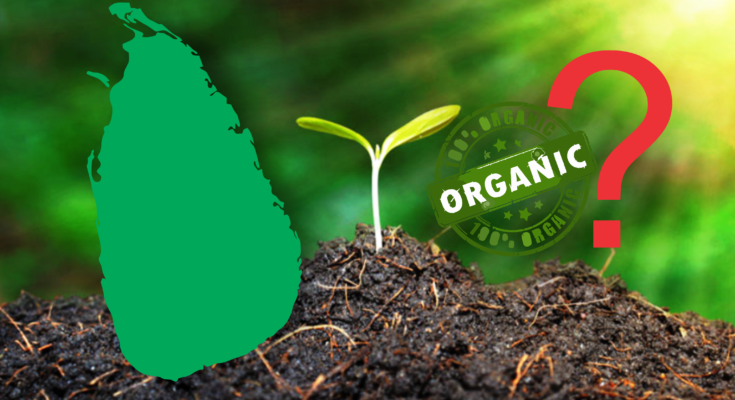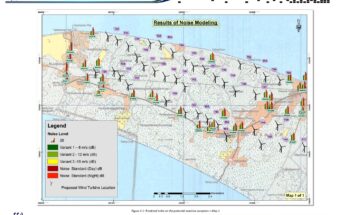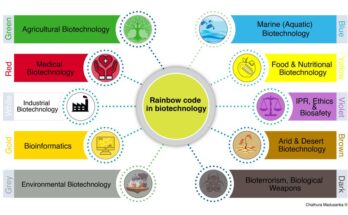As per a policy decision by the Sri Lankan Government the country is moving toward an eco-friendly sustainable agricultural system by promoting organic farming within the country. Going with this decision the government issued the Gazette Extraordinary No. 2226/48 of May 6, 2021, banning the importation of chemical fertilizers and pesticides with immediate effect. As a country which relies heavily on agriculture this decision came as a surprise and discussions, arguments and debates began surfacing over the good and bad sides of it.
Few days back a group of Agricultural Scientists and Professionals representing universities, research stations, and other Agriculture related organizations formulated a special report and forwarded it to His Excellency the President Gotabhaya Rajapakse urging the government to rethink the strategy towards an eco-friendly sustainable agriculture as these sudden decisions could lead to catastrophic situations in Sri Lankan Agricultural sector. In this report titled “Development of eco-friendly sustainable farming systems in Sri Lanka” they suggest the government to gradually decrease the usage of agrochemicals by implementing a proper system to monitor excess usage of agrochemicals and increase the production of organic fertilizers within the country by taking necessary steps to promote it. The experts also warn that with the current fertilizer and other agrochemical ban would lead to a major loss of production in almost all the sub sectors in Sri Lankan Agricultural sector including Paddy Cultivation and Tea cultivation.
Given below are the main sections included in the report,
Current status of agriculture in brief
In Sri Lanka, agriculture occupies around 40% (2.3 million ha) of its land and consumes over 80% of its fresh water resources, while 27% (over 2 million) of the country’s workforce is engaged in farming. There are over 3.3 million holdings in agriculture of which 45 % is less than 0.1 ha (quarter of an acre) and over 90 % of production unitsare less than 2 ha (5 acres). Thus, around 80 % of the food production is in the hands of small holders, which poses a serious constraint and challenge to introducing modern technology and new practices in agriculture. This sector is beset with a myriad of issues, including stagnant and low yield and quality, poor and inefficient use of resources, including land, water and fertilizer, uncoordinated and unregulated production and overuse and misuse of pesticides and fertilizers. For instance, the average yield of paddy in Sri Lanka is around 4,500 kg /ha as opposed to around 5,100, 7,000 and 8,800 kg/ha in Indonesia, China and Australia, respectively. A similar situation exists in regard to most other crops grown in the country. Similarly, the nitrogenous fertilizer use efficiency is very low, i.e. c. 20‒30%, resulting in a high degree of losses (70‒80%) to the environment. These issues have been further exacerbated, historically, by lack of a rational, coherent and consistent national policy with a clear sense of direction and
depth.
Over 70% of the people of the country are directly and indirectly dependent on agriculture and Sri Lanka currently spends around $2.2 billion annually to import food commodities to meet the food deficit, needs and wants of the country. Yet, malnutrition and under-nutrition are widespread with over 20% of children below 5 years being underweight. The implications of the immediate ban of the import of fertilizers and other agrochemicals and mitigation measures are outlined against this backdrop.
What can be done to reduce the undesirable consequences to agriculture and reduce the foreign exchange involved in the import of agrochemicals?
(i) To immediately stop the fertilizer subsidy under which fertilizers are imported mainly based on low price, rather than on quality, thus with harmful impurities. Needless to add that farmers tend to use fertilizer indiscriminately and excessively when they are highly subsidized or given free
(ii) To introduce stringent quality control measures in the import of essential fertilizers as is done in many other countries and offer them to farmers at the market price.This, besides minimizing the overuse of fertilizers, will prompt unproductive and marginal farmers to leave agriculture and secure gainful employment in other sectors. This should be facilitated and supported through introduction of appropriate reskilling and retooling programmes.
(iii) To apply fertilizers based on the nutrient status of the soil rather than on the blanket recommendations made by the relevant institutions.
Universities and R&D institutions should be drawn in to fulfill such analytical needs by establishing service laboratories.
(iv) To introduce second and third generation fertilizers for a gradual phase-out of first generation fertilizers, which have a very low fertilizer use efficiency, c. 20‒ 25%, as opposed to over 60‒70% for others. Though the former fertilizers are more expensive than the latter, 350 g of the former will have the effect of one kg of the latter, which will therefore considerably reduce the undesirable environmental consequences and reduce import costs.
(v) To facilitate production of phosphatic fertilizer locally using the huge, high-quality reserve of Eppawala apatite by providing the requisite financial support
(vi) To immediately regulate and control the import and sale of agrochemicals such as pesticides, weedicides, fungicides etc. with appropriate interventions.
Though one cannot buy even a commonly used antibiotic without a valid prescription and only a qualified pharmacist can run a pharmacy, no such regulation and control are in place for the sale of even highly hazardous agrochemicals. Therefore, even a child can buy any quantity of the most hazardous pesticides without restriction and no qualification is required to run an agrochemicals stall.
(vii) To improve and strengthen the extension service enhanced by ICT so that the farmer can get ready access to the necessary professional advice from a competent extension staff Presently the farmer mainly depends on the retailers of agrochemicals for advice on what and how much to apply for a given pest or disease, and they often “overprescribe” a cocktail of pesticides for obvious reasons. This alarming situation, which has prevailed for several decades, demands immediate intervention through appropriate regulation and proper monitoring.
(viii) To regulate and coordinate commercial crop production based on soil and agroclimatic suitability, taking into account seasonal variations in demand and supply at provincial and national levels.
This, besides reducing gluts and scarcities of food and attendant heavy postharvest losses and drastic price fluctuations, will ensure food production under the best available conditions with a considerably reduced extent of land, thereby markedly reducing the ecological footprint as well. For instance, there are about 850,000 ha of land under paddy of which around 90% is cultivated in Maha and around 50% in Yala with the average yield ranging from about 2.5 to 7 t/ha or even more widely depending on the district, location, season and management. Though the average yield shows such a drastic variation, more or less the same quantities of fertilizers and pesticides and water are used across the whole range. Therefore, if commercial cultivation of paddy is permitted and done based on land suitability, the cultivated extent under paddy can be considerably reduced without affecting the total yield. However, it is important to keep the paddy fields in the wet zone with high yield potential so as to ensure food security. This principle can be extended to other crops as well, which will lead to a substantial reduction in the use of agrochemicals in agriculture.
(ix) To intensify and manage home gardens for improved food security and human nutrition
In Sri Lanka, there are nearly 4.5 million home gardens occupying 839,124 ha which constitute 18% of the total land area. A vast proportion of them are underutilized and not properly managed, yet they provide fresh, healthy and nutritious foods for the millions of households. Productivity and yield of those holdings can be considerably increased through sustainable intensification without external inputs.
(x) To identify outstanding model farmers following the good agricultural practices (GAPs) in the country for the major crops, provide them with more resources and support to expand their cultivation, and use them as “ambassadors” to promote eco-friendly agriculture and train other promising farmers. Here,
adopting integrated plant nutrient management (IPNM) practices with low external inputs and promoting a GAP certification system prove important.
(xi) To identify promising framers engaged in organic farming and establish “Organic Islands” in suitable areas of the country and provide them with more support and incentives for augmenting organic farming. Here, developing a network of such farmers, providing facilities for obtaining internationally recognized certification for their organic products and integrating them into regional and global markets are of prime importance
(xii) To facilitate and promote the production of organic manures by providing necessary training, incentives and resources and taking steps to regulate and monitor their quality. Here, the quality parameters should be clearly laid down.
For instance, the C/N ratio of organic manure should be less than 20 and if that is exceeded, there can be immobilization of soil nitrogen causing nitrogen deficiency in plants.
(xiii) To step up production and distribution of inoculums for legumes and biofertilizers for paddy and other crops to cut down use of nitrogenous and phosphatic fertilizers for their production
(xiv) To develop and conduct effective awareness programmes for the farming community and general public on the harmful effects of agrochemicals on health and environment and how to minimize them.
The above recommendations can easily be implemented. They will serve not only to greatly
minimize the misuse, overuse, unnecessary and irrational use of agrochemicals and the health and environmental hazards associated their use in agriculture, but also will markedly reduce the heavy import bill on agrochemicals without affecting the current level of agricultural production. Therefore, those interventions will contribute significantly to achieving the goals and objectives envisaged from banning, but without actually banning which will lead to a progressive reduction in the use of inorganic fertilizers in agriculture.
Potential impact of the ban of the importation of inorganic fertilizers on the performance of the agriculture sector
There are several crops such as nutmeg, cloves, vanilla and cardamom which have hardly undergone yield improvement by breeding for responsiveness to fertilizers. These crops are mainly grown in agroforestry systems where there is minimal use of inorganic fertilizers. Such crops will be hardly affected by the ban and the impact on crops such as pepper, coffee and cocoa can be overcome by adding green manure, i.e. loppings of Glyricidia sepium, and on legumes such as cowpea, green gram, black grams and soybean by inoculation. However, it could result in a considerable drop in yield for several very important crops by between 25% and almost 100% (Table 1) as most of them have been bred for high-input agriculture, including responsiveness to fertilizer. Similar trends have already been observed in many parts of the world when inorganic fertilizers have been completely replaced with organic manure.
Moreover, maize, sorghum and by-products of rice (i.e. bran) and coconut (i.e. poonac) etc. are used in silage making and animal feed production. Therefore, a drop in the production of such crops will also affect the quality and cost of animal feed which in turn will affect the performance of the livestock and poultry sector.
Table 1: Predicted short-term drop in the performance of some economically important crops consequent to the ban of the importation of inorganic fertilizers
| Crop | Estimated Lost(%, approx.) |
| Tea | Up to 50 |
| Paddy | Up to 30-35 |
| Maize | Up to 50 |
| Potato | Up to 30 – 35 |
| Sugarcane | Up to 30 – 40 |
| Cinnamon | 25 |
| Betal | 20 |
| Up Country Vegetables | 30-50 |
| Floriculture/foliage plants | Almost 100 |
| Controlled environment agriculture/Hydroponics | Almost 100 |
institutions
There is special concern about the potential impact on rice and tea, one a staple food and the other a very important foreign exchange earner of the country. The latter faces fierce global competition and our country has already lost part of its global market consequent to the ad hoc ban of the import and use of Glyphosate in 2015, but rescinded in 2018. The country has not been able to regain the lost market (i.e. Rs 15-20 billion) due to the stiff competition. Therefore any impact, particularly on national tea production, will have far-reaching implications which are hard to reverse.
Need for promoting eco-friendly sustainable agriculture in place of conventional agriculture
Given the serious health and environmental hazards associated with conventional agriculture, there is dire necessity to develop eco-friendly sustainable agricultural systems. It relies on and protects nature by taking advantage of natural goods and services, such as biodiversity, nutrient cycling, soil regeneration and natural enemies of pests, and by integrating these natural goods into agroecological systems that ensure wholesome food for the people while protecting and conserving soil and water and mitigating climate change.
This obviously goes far beyond mere application of organic manure and bio-fertilizers and demands a holistic approach where the annual and perennial crops should be integrated with livestock and aquaculture as appropriate in a temporally and spatially compatible manner to simulate a natural ecosystem as far as is practicable. This cannot be achieved in a short period, and a concerted, concentrated and consistent effort should be made by all the relevant institutions and stakeholders for a long period backed by appropriate policy intervention.
The main reason for promoting the use of organic manures in agriculture is to improve physical (namely, water holding capacity, cation exchange capacity (nutrient retention ability), aeration etc.) and biological properties (namely, abundance and activity of favorable soil flora and fauna) rather than to provide nutrients. Soil biota promotes processes such as soil mineralization, nitrogen fixation, phosphorous solubilization etc. which in turn will enhance soil fertility and productivity. Therefore, organic manures are principally soil amendments and conditioners rather than a substitute for inorganic fertilizers. Moreover, organic manure needs to be applied consistently over a period of several years for such improvements to take place in a degraded soil.
Organic manures generally contain about 1-2% nitrogen, which is not readily available to crops particularly of short duration, i.e. 3-4 months, which include important crops such as paddy and vegetable crops but is released gradually over a period of several months to several years depending on its quality and environmental conditions. Therefore, it is not practically feasible to realize the yield potential of varieties developed for high-input agriculture by shifting from inorganic fertilizers to organic manures, particularly when the soils are degraded. Besides, the enormous quantities of organic manure required, at relatively high cost per hectare, lack of timely availability in the required quantities, inherent risks in importing (due to possible introduction of harmful microorganisms and heavy metals consequent to weak and lax regulatory oversight), scarcity and high cost of labour and logistical issues, the application of organic manure as a substitute for inorganic fertilizers poses a multitude of serious issues in the short run, including higher cost of production, reduced yields and increased price of agricultural produce.
Therefore, we predict substantial yield losses due to lack of suitable substitutes for chemical fertilizers and pesticides following the abrupt ban of the importation of inorganic fertilizers and other agrochemicals. This could severely impact food security, farmers’ income, foreign exchange earnings and the nutrition of a vast segment of the people of the country with pernicious far-reaching social, economic and political implications.
In these circumstances, a prudent approach would be to move towards a more eco-friendly and sustainable food system using a judicious combination of organic and inorganic plant nutrients with a progressive reduction in the use of inorganic fertilizer over time. The aim should be to strike the right balance between inorganic and organic fertilizers, while at the same time stringently regulating and restricting the import and use of agrochemicals as done in many developed countries in the world. The aim, in other words, should be optimum production with minimal harmful effects on people and the environment. A gradual approach will be wise to avert short term crises.
As members of the community of senior agricultural scientists, academics and professionals in the country representing a significant section of the community, we affirm our resolute and unwavering commitment to promoting eco-friendly sustainable agriculture in our motherland.
We are also fully aware and conscious of our bounden duty and moral obligation to the country and its people at this crucial juncture exacerbated by the current pandemic, and declare our commitment to mobilizing and channeling to the fullest the scientific and intellectual resources and assets to formulate a pragmatic and realistic road map and an actionable strategic plan to achieve the above objective.
Therefore, while reiterating our fullest support and cooperation to Your Excellency to build an eco-friendly sustainable agriculture in Sri Lanka, we wish to discuss with Your Excellency about how agricultural scientists and professionals could more effectively contribute to the above objective in keeping with the national policy, and would appreciate it very much if we are granted an early opportunity for such discussion.





I’m a founder of river erosion control techniques by bioengineering. Researching on organic farming and fertilizing in Sri Lanka